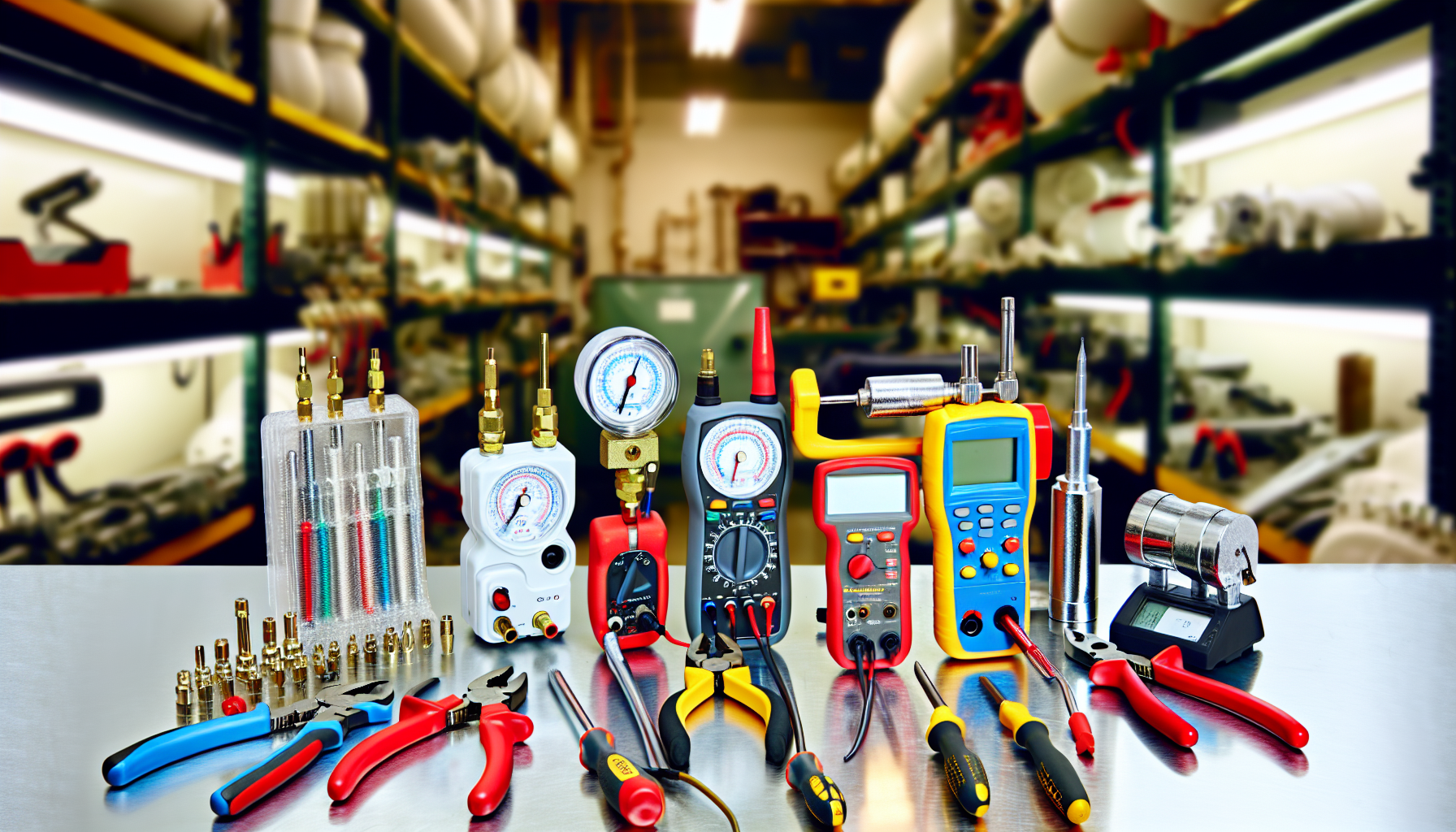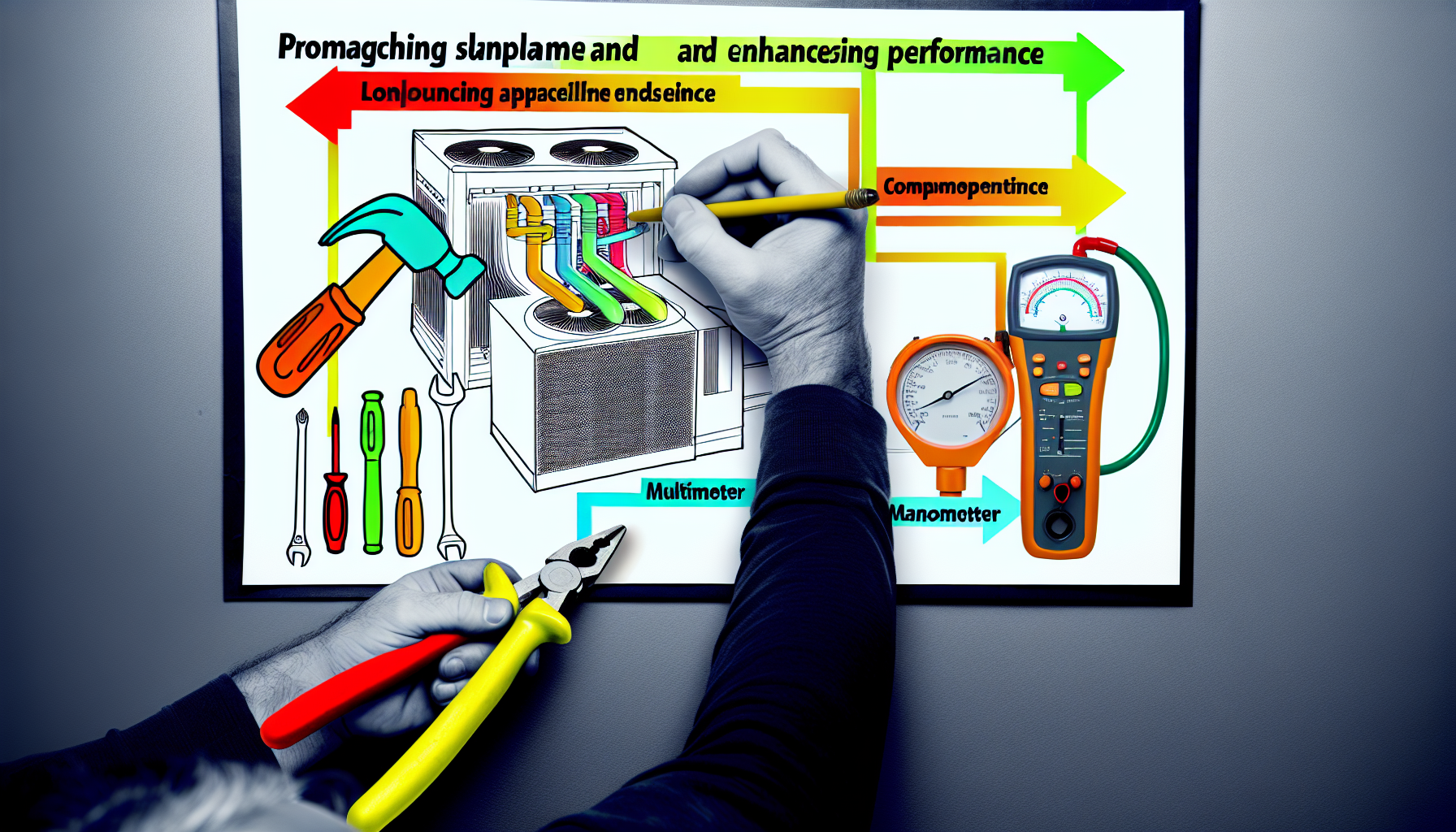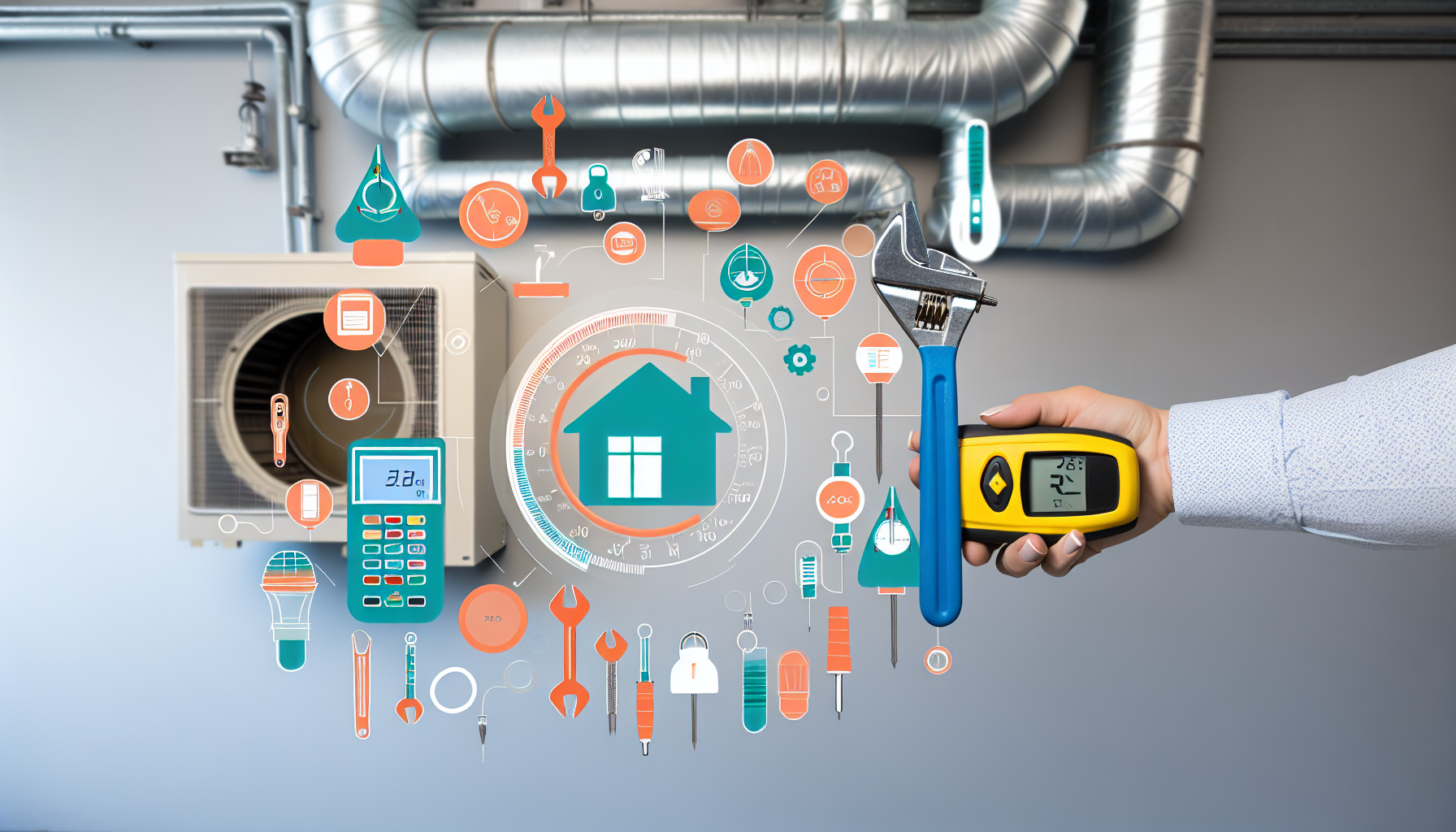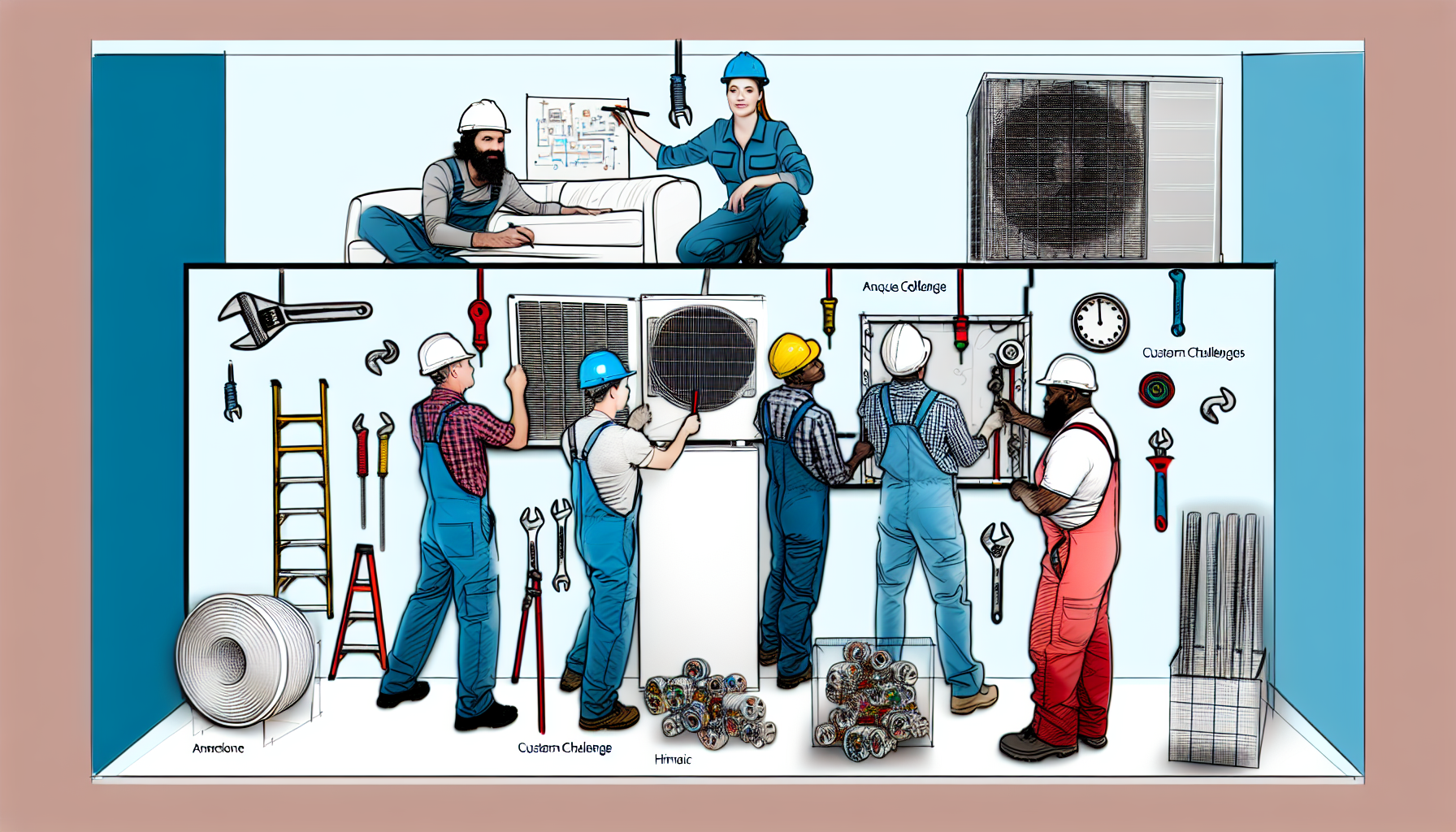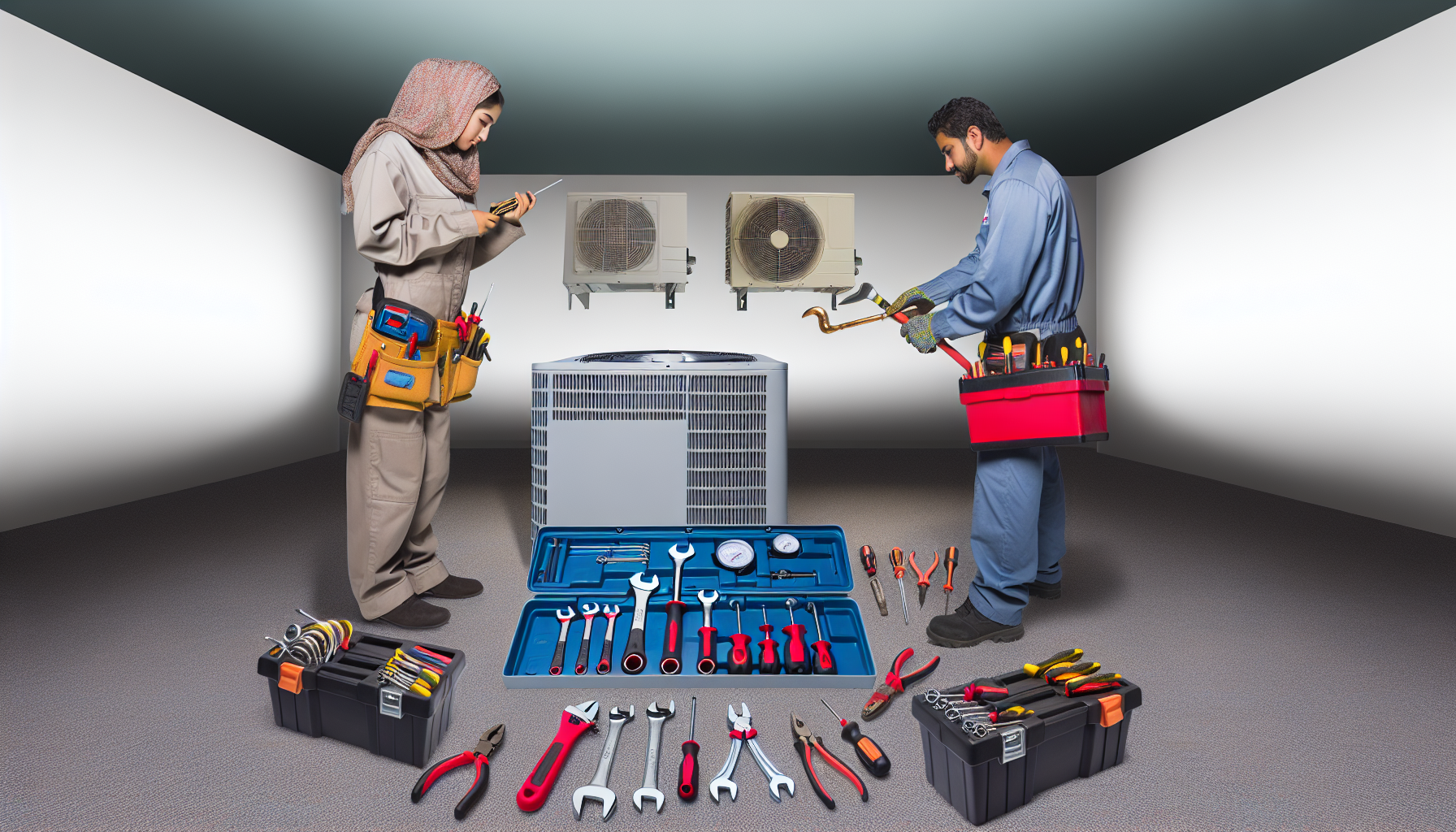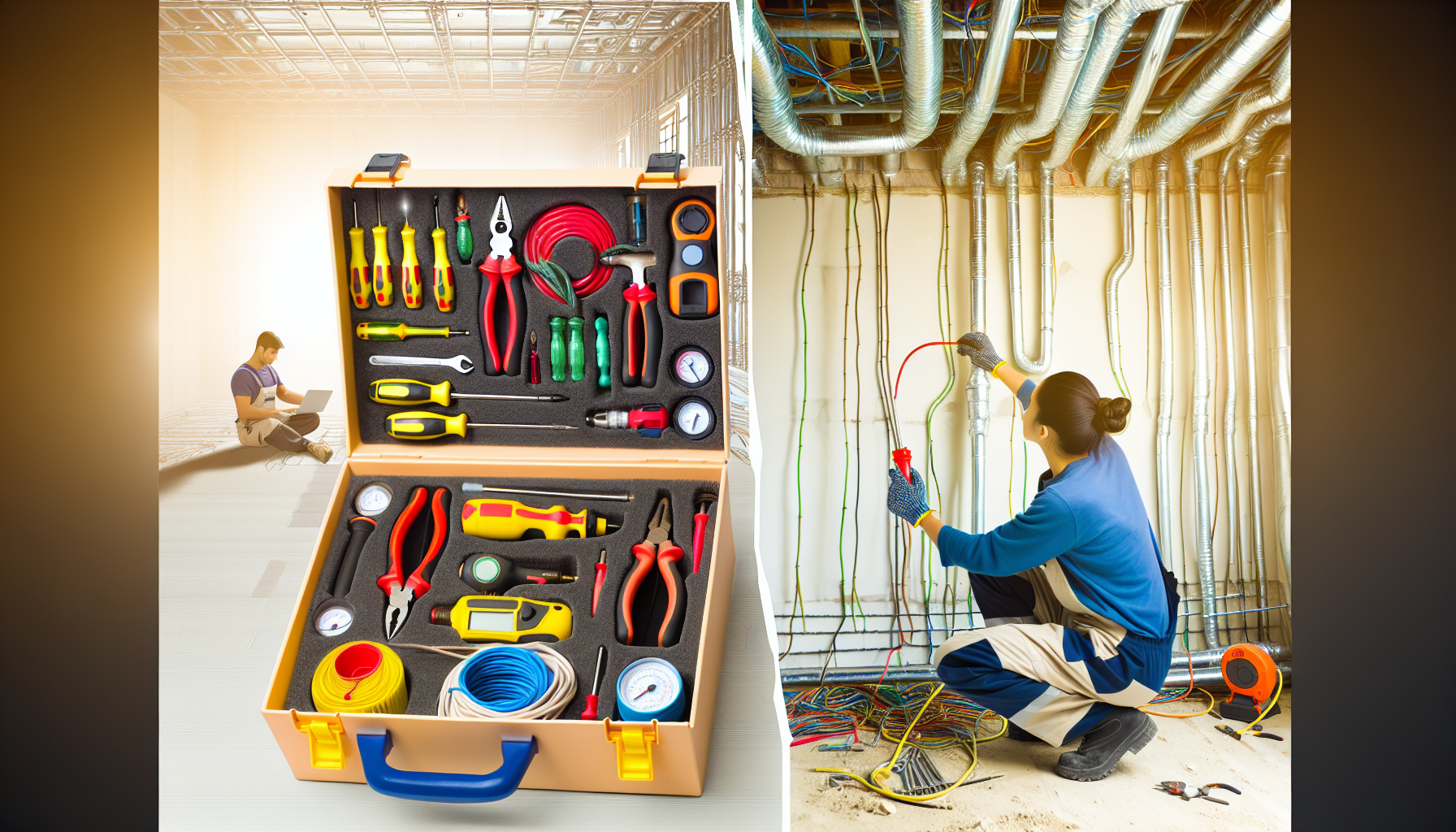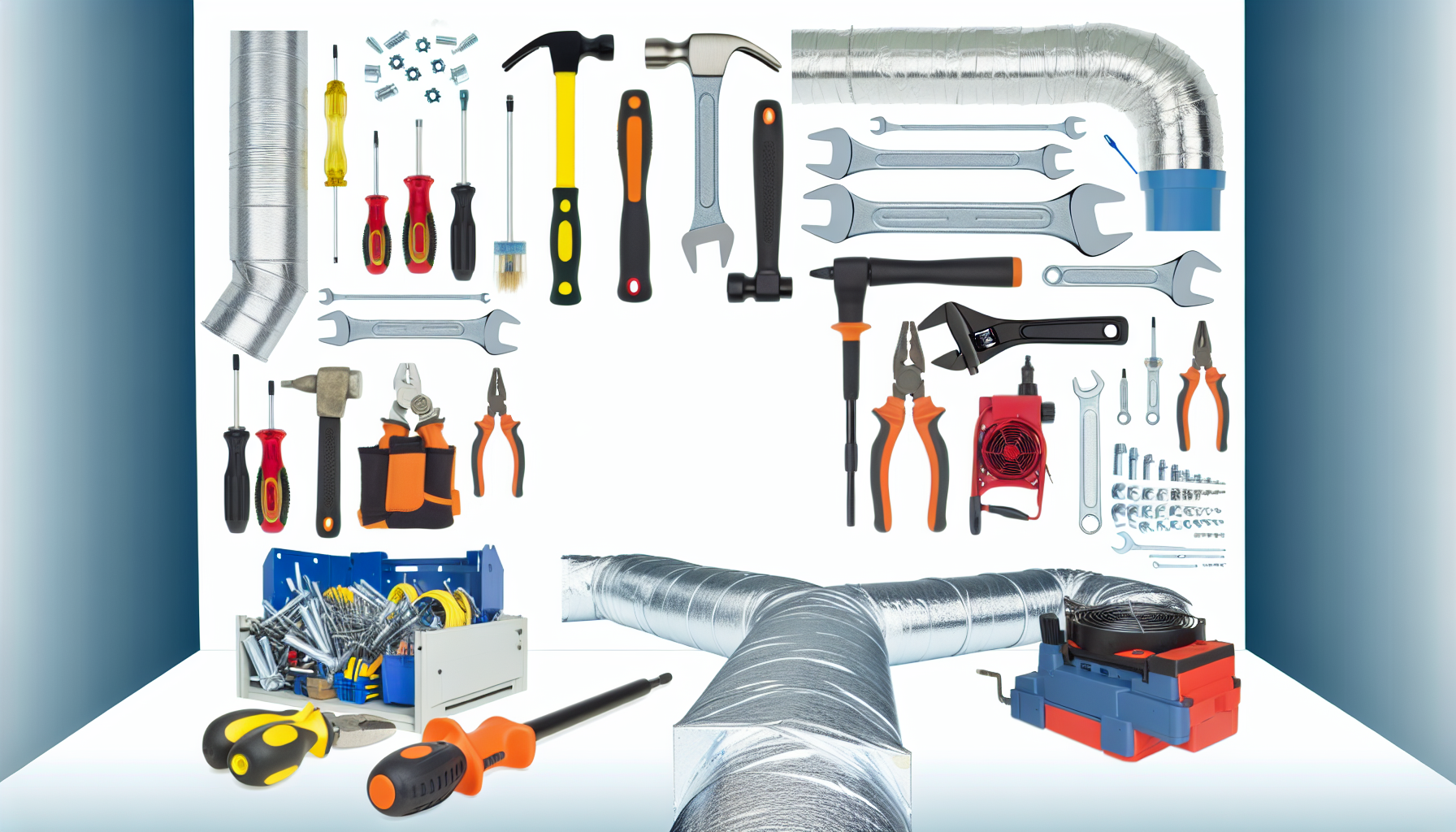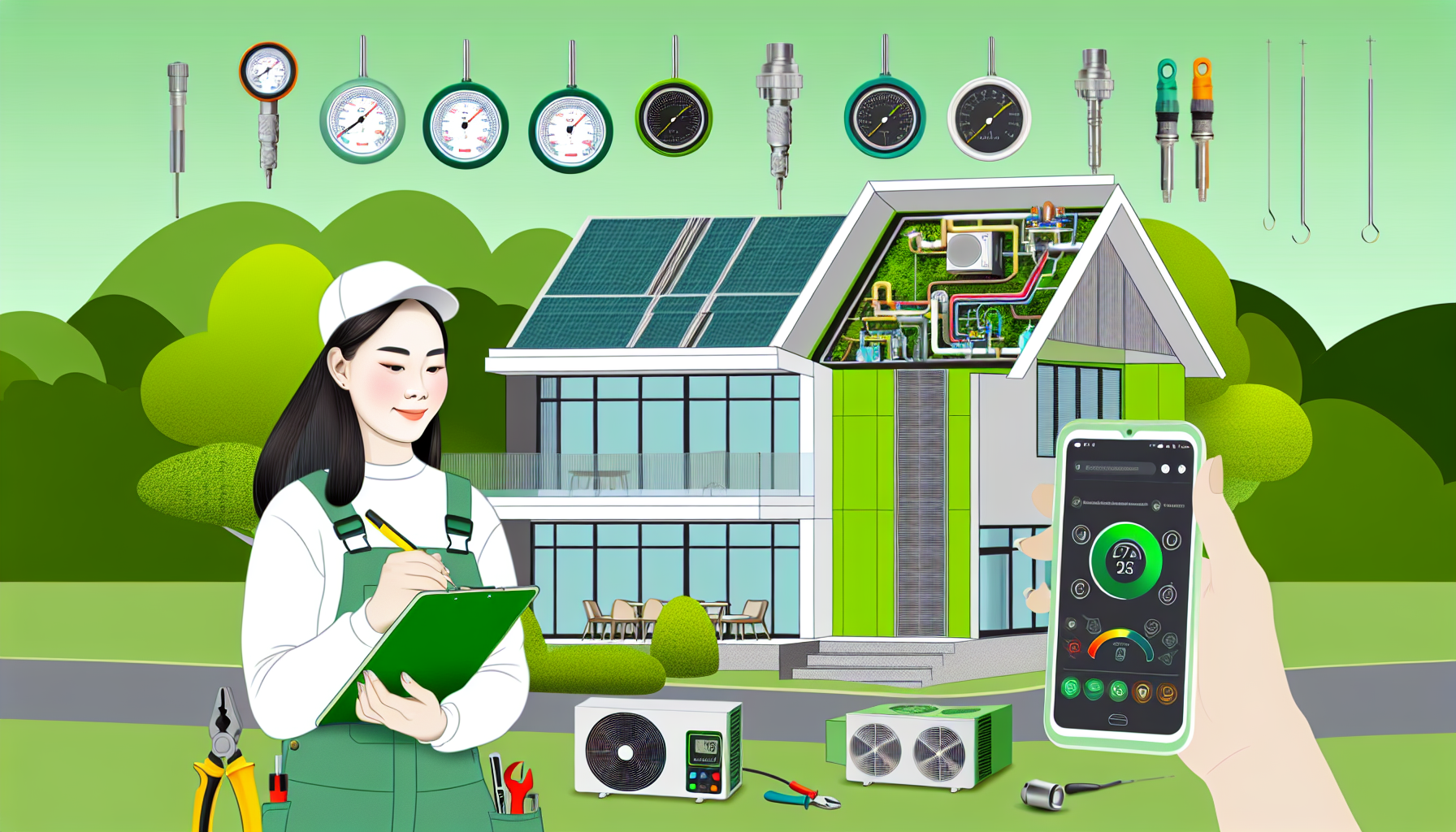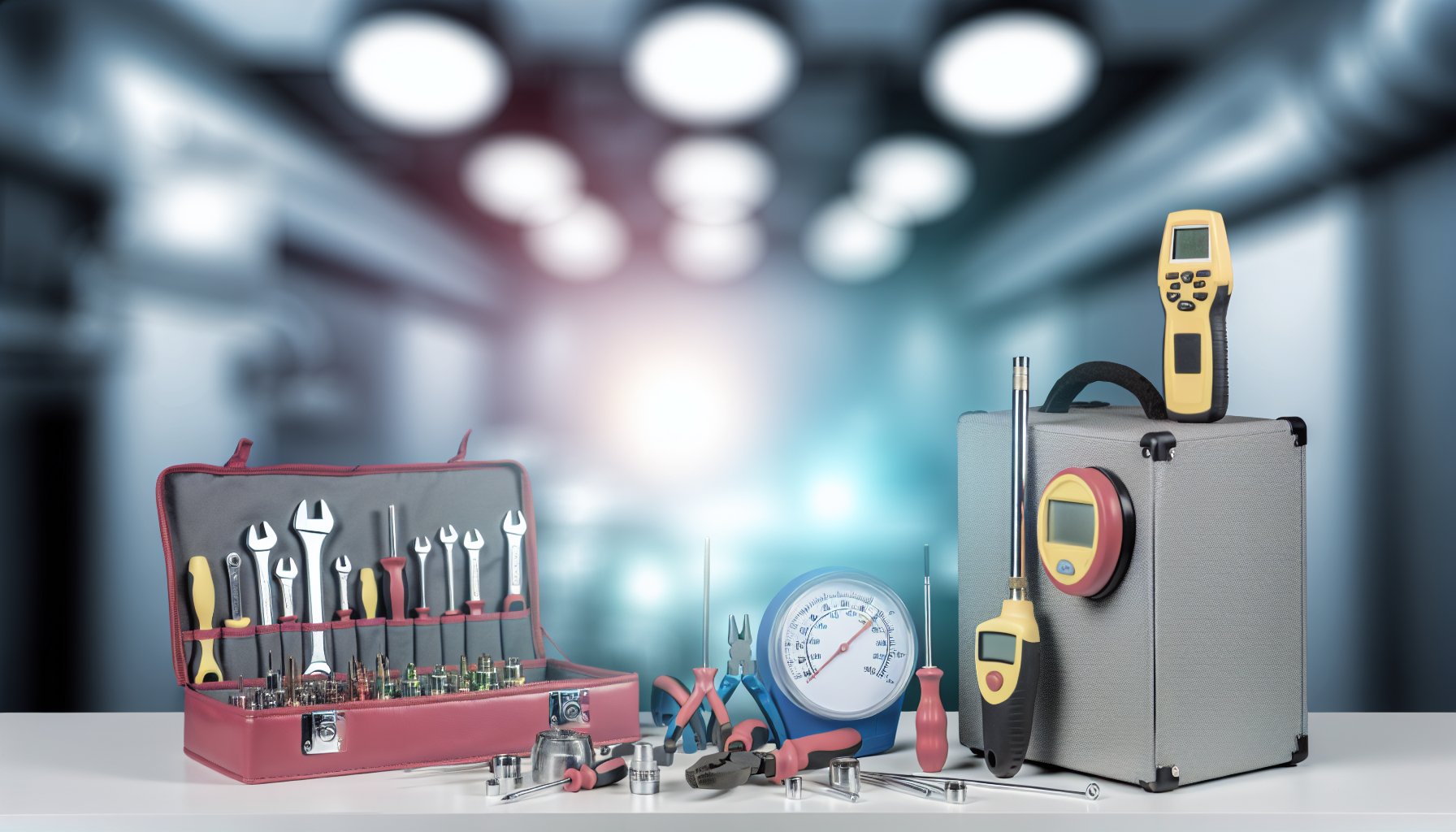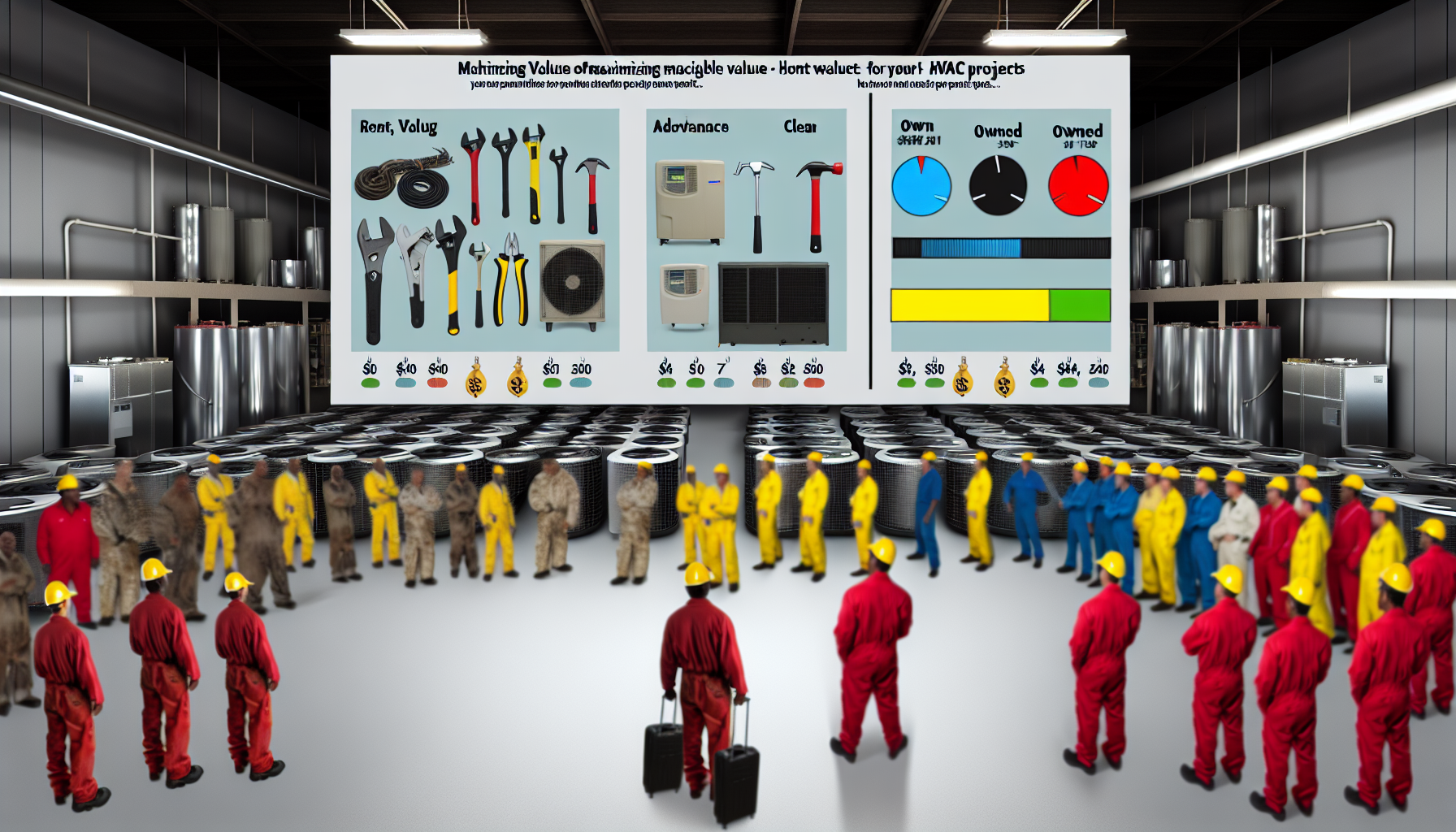Introduction
Heating, ventilating, and air conditioning (HVAC) systems are critical components in residential, commercial, and industrial buildings. The installation and assembly of HVAC units are intricate processes that require precision, expertise, and the right tools. With advancements in technology, a variety of essential tools and software have emerged to revolutionize these processes. They ensure efficiency, accuracy, and the highest quality of workmanship. In this post, we delve into the essential tools and software that are transforming the HVAC industry.
The Essential Toolkit for HVAC Professionals
Every HVAC technician knows the importance of having a reliable and complete toolkit. Here’s a list of the indispensable tools every HVAC professional should have.
- Multi-meter: For measuring electrical voltage, current, and resistance.
- Gauges: Used for checking pressure within cooling systems and refrigerants.
- Vacuum pump: Crucial for removing moisture and air from refrigeration systems.
- Leak detector: Helps to quickly identify any leaks in an HVAC system.
- Tubing cutter: For precise cutting of piping used in installations.
- Screwdrivers and wrenches: The basics for any assembly and repair work.
- Swaging tools: Allows for the widening of tubes for better fittings.
- Welding and brazing kits: Essential for joining metal components securely.
- Duct tape and foil tape: For sealing ductwork and insulation.
- Cordless drill: Speeds up the process of installing screws and fasteners.
Advanced HVAC Software Solutions
In conjunction with the necessary hand tools, software solutions have become equally essential in streamlining HVAC operations.
- Design and Drafting Software: This software enables technicians to visualize and plan HVAC systems before installation begins.
- Load Calculation Software: It helps in determining the right size and specifications of HVAC units required for specific spaces.
- Customer Relationship Management (CRM) Software: Keeps track of customer interactions, appointments, and service histories.
- Field Service Management Software: For coordinating on-the-job tasks, managing inventory, and handling scheduling and dispatching.
- Billing and Invoicing Software: Automates the creation of accurate invoices, helping to streamline the payment process.
- Energy Analysis Software: Provides simulations and analyses of energy consumption, leading to more efficient HVAC system designs.
- Diagnostics and Trouble-shooting Software: Offers real-time data and error codes to aid in the diagnosis of HVAC issues.
How Technological Advancements Enhance HVAC Processes
With the right tools and software, HVAC installation and assembly become more efficient and less prone to error.
- Improved Accuracy and Efficiency: Digital tools and software allow for precise measurements, calculations, and assessments of HVAC systems, reducing the likelihood of manual errors.
- Enhanced Project Planning: Virtual design software makes it possible to plan and adjust HVAC configurations with fewer onsite adjustments and changes.
- Streamlined Operations: From scheduling work orders to deploying technicians, software solutions help keep operations organized and clients satisfied.
- Better Client Relations: The use of CRM software enhances the customer experience by maintaining detailed records and personalizing service.
- Faster Troubleshooting: Diagnostic software provides instant feedback, speeding up the repair process and reducing system downtime.
- Environmental Impact: Energy analysis software assists in creating more energy-efficient systems, contributing to greener and more sustainable practices.
What to Consider When Selecting HVAC Tools and Software
When selecting tools and software for HVAC processes, several factors should be taken into account:
- User-friendliness: The ease with which technicians can use the tools or software is key to successful implementation.
- Compatibility: Tools and software should be compatible with existing systems and devices.
- Training and Support: Adequate training and reliable customer support can significantly impact the adoption rate of new technology among technicians.
- Cost-effectiveness: Consider the return on investment when procuring new tools and software, keeping in mind the long-term savings they could bring.
- Reviews and Recommendations: Do your research, read reviews, and seek recommendations from industry peers before making a decision.
Success Stories: The Impact of Technology on HVAC Services
Many service providers have witnessed substantial benefits from integrating advanced tools and software into their HVAC services.
- A service company was able to reduce its energy spending by 20% after implementing energy analysis software.
- Enhanced diagnostic software helped a technician identify and fix a complex issue within minutes, a process that previously could have taken hours.
- The introduction of field service management software saw a 30% increase in the efficiency of dispatching technicians and managing work orders.
- Through the use of CRM software, a local HVAC business reported increased customer retention rates and a significant boost in referral business.
FAQ Section
What are the must-have physical tools for HVAC professionals?
The must-have physical tools for HVAC professionals include multi-meters, gauges, vacuum pumps, leak detectors, tubing cutters, screwdrivers, wrenches, swaging tools, welding and brazing kits, and cordless drills.
Can HVAC installations be performed without specialized software?
While it is possible to perform HVAC installations without specialized software, utilizing such tools can greatly enhance precision, efficiency, and the overall quality of the installation process.
Is it difficult for HVAC companies to transition to using advanced software?
The difficulty in transitioning to advanced software depends on the complexity of the software and the training provided. With proper training and support, HVAC companies can smoothly integrate new software into their operations.
How does HVAC software contribute to energy efficiency?
HVAC software contributes to energy efficiency by enabling technicians to design and install systems that meet exact specifications for the spaces they serve. Energy analysis tools also allow for monitoring and improving system performance over time, leading to sustained energy savings.
Are there affordable software options for small HVAC businesses?
Yes, there are many affordable software options tailored for small HVAC businesses. It’s important to compare features and determine which software offers the best value for your specific needs and budget.


